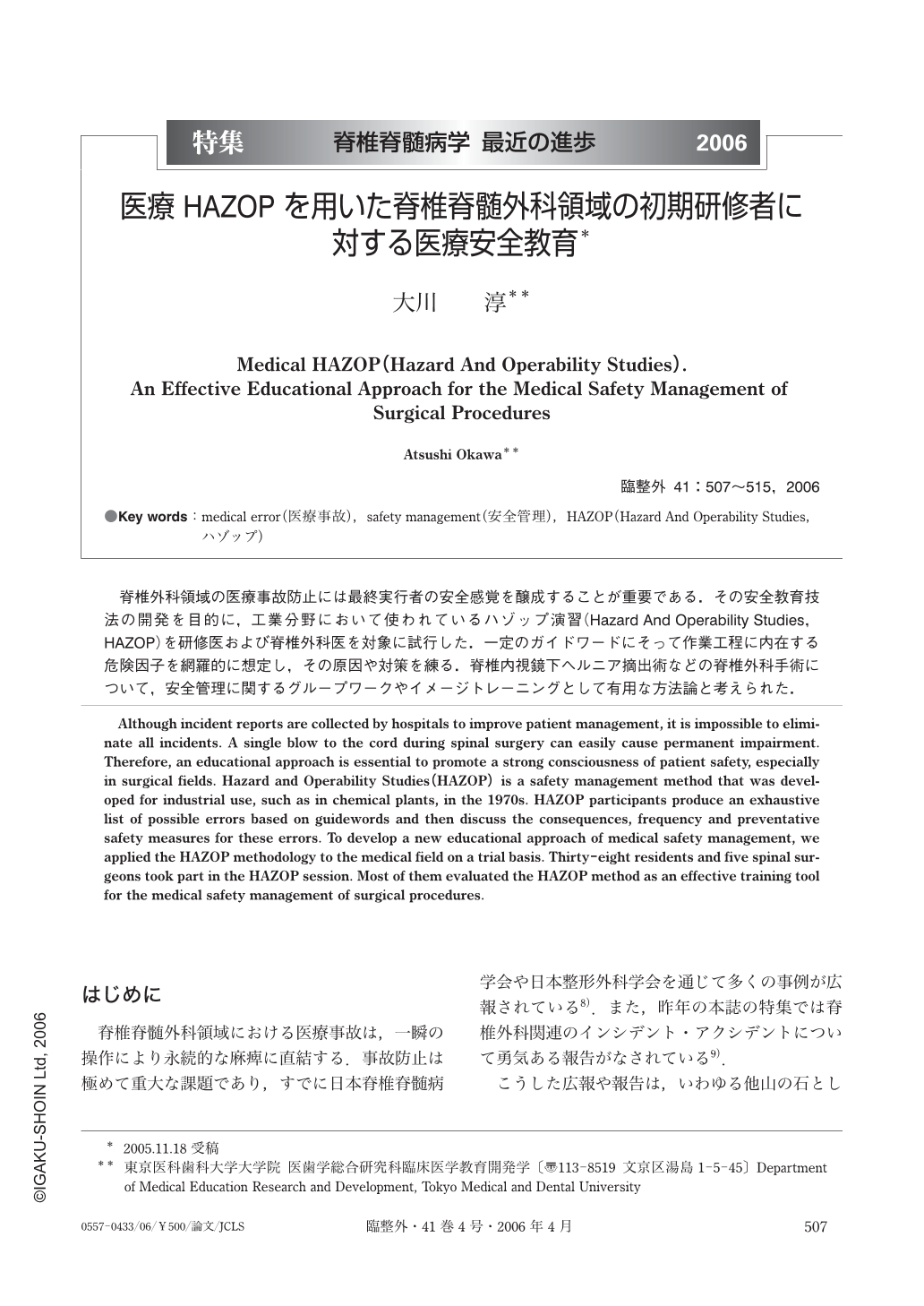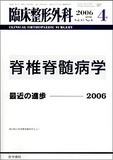Japanese
English
- 有料閲覧
- Abstract 文献概要
- 1ページ目 Look Inside
- 参考文献 Reference
脊椎外科領域の医療事故防止には最終実行者の安全感覚を醸成することが重要である.その安全教育技法の開発を目的に,工業分野において使われているハゾップ演習(Hazard And Operability Studies,HAZOP)を研修医および脊椎外科医を対象に試行した.一定のガイドワードにそって作業工程に内在する危険因子を網羅的に想定し,その原因や対策を練る.脊椎内視鏡下ヘルニア摘出術などの脊椎外科手術について,安全管理に関するグループワークやイメージトレーニングとして有用な方法論と考えられた.
Although incident reports are collected by hospitals to improve patient management, it is impossible to eliminate all incidents. A single blow to the cord during spinal surgery can easily cause permanent impairment. Therefore, an educational approach is essential to promote a strong consciousness of patient safety, especially in surgical fields. Hazard and Operability Studies (HAZOP) is a safety management method that was developed for industrial use, such as in chemical plants, in the 1970s. HAZOP participants produce an exhaustive list of possible errors based on guidewords and then discuss the consequences, frequency and preventative safety measures for these errors. To develop a new educational approach of medical safety management, we applied the HAZOP methodology to the medical field on a trial basis. Thirty-eight residents and five spinal surgeons took part in the HAZOP session. Most of them evaluated the HAZOP method as an effective training tool for the medical safety management of surgical procedures.

Copyright © 2006, Igaku-Shoin Ltd. All rights reserved.


